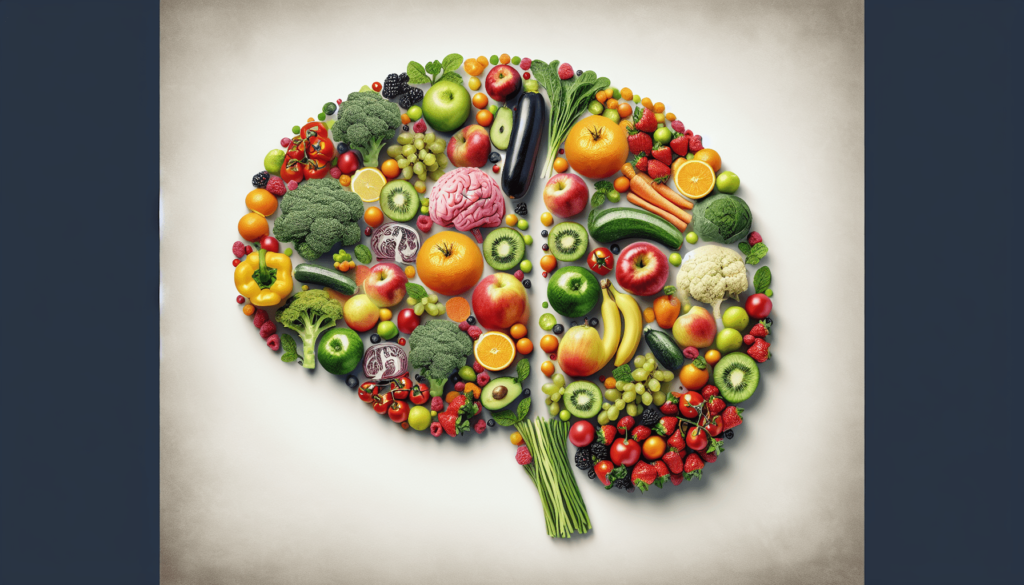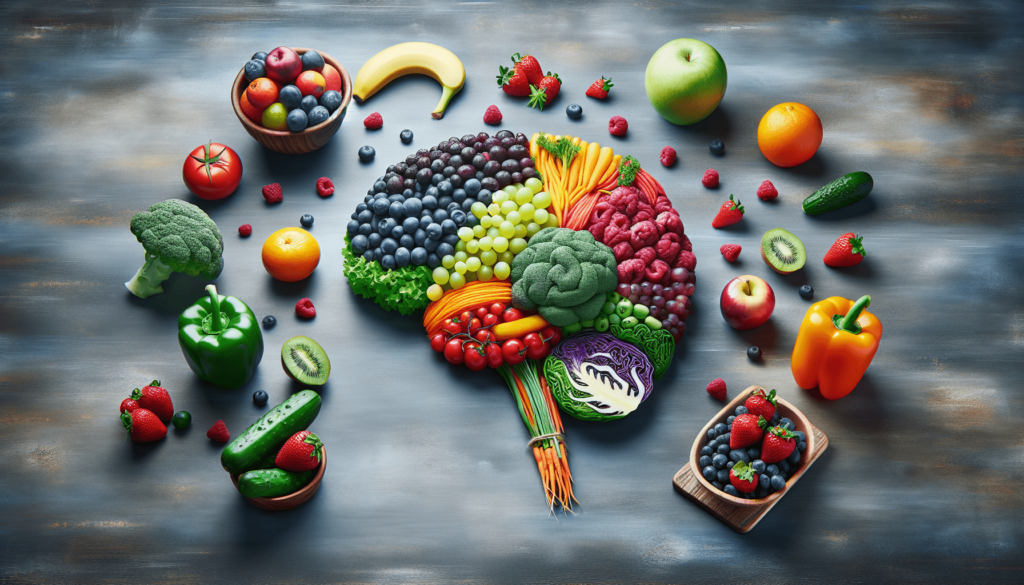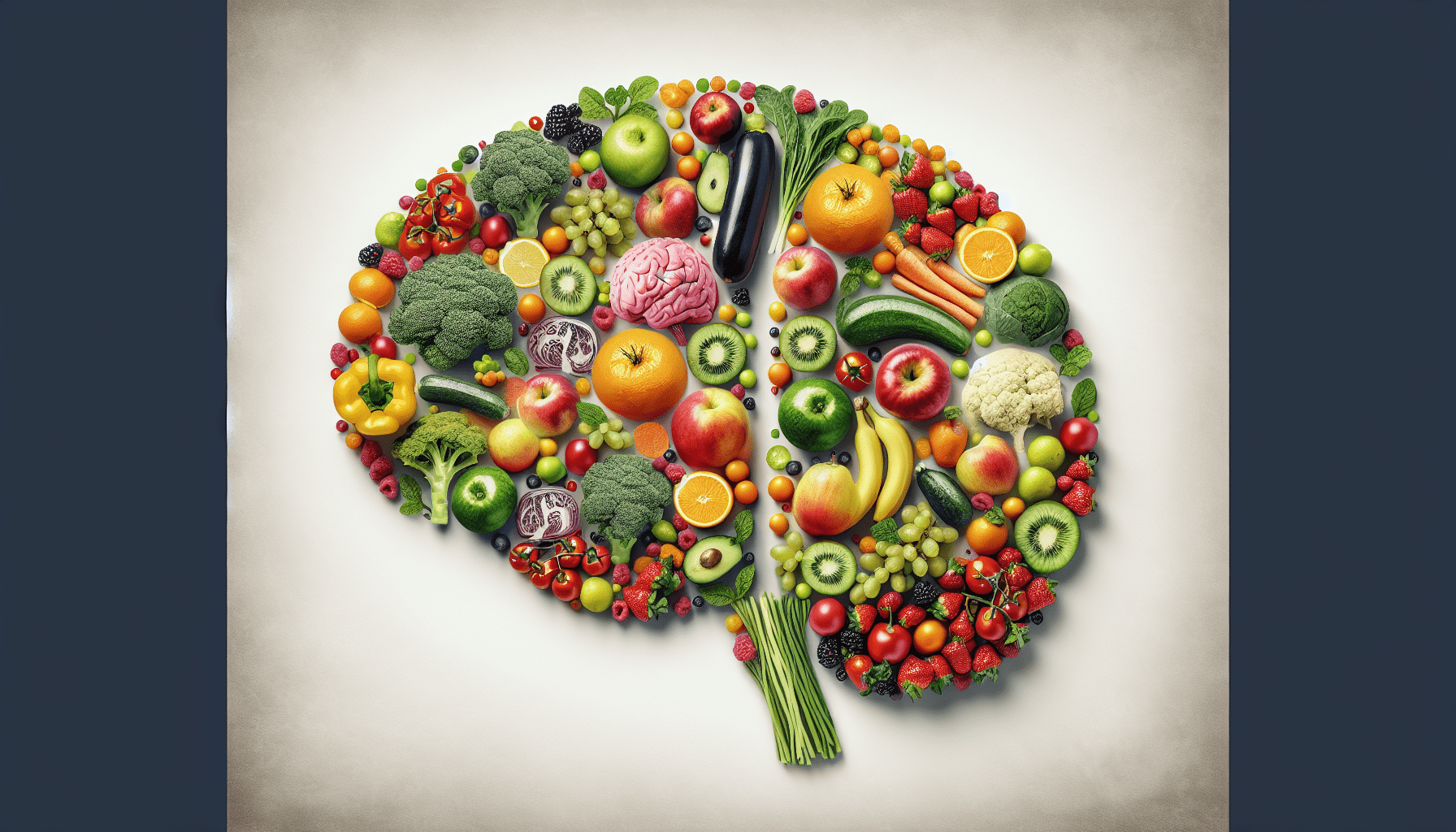Have you ever felt like your brain is hosting a garage sale, but all your thoughts ended up in the “free” box? Fear not, good reader, for we’re tackling the issue of mental clarity with the enthusiasm of a squirrel on a caffeine rush. You see, your brain is like a demanding diva; it requires a particular diet full of nutritional essentials to perform at a Broadway level. Sadly, giving in to a diet of gummy bears and potato chips will only leave you with fogged-up thinking and a soundtrack to your life set to elevator music.
Understanding Mental Clarity
What in the world is mental clarity, you ask? Well, shining a light on this term can help us realize that sometimes it’s not us, it’s actually our brains. Mental clarity is essentially the capacity to think with sharpness, focus, and precision. It’s your brain’s ability to perform its tap-dance without tripping over confusion, doubt, or a memory fumble about where you left your left shoe. In this section, we’ll break down this concept, like a high school clique dissecting a lunchroom gossip.
The Science Behind Mental Fakery
In the quest for understanding, science often brings clarity, unless you’re reading a scientific paper in the wee hours and your brain decides to clock out early. Essentially, the brain is the control center, much like a highly caffeinated air traffic controller at an understaffed airport. Neurons are your flight paths, neurotransmitters are the ground crew, and your diet is the energy that keeps them from going belly up.
Why Is Mental Clarity Important?
Mental clarity is vastly underrated, like the lone chip at the bottom of the packet. It’s crucial for decision-making, problem-solving, and not mistaking random strangers for your childhood piano teacher when you’re at a cocktail party. Moreover, having strong mental clarity can be the difference between a successful day at work and wondering why you decided to leave the house sporting two different shoes.
The Connection Between Diet and Brain Function
Now let’s ease into the connection between what you eat and the 3-pound gelatinous mass called your brain. It might amaze, amuse, or make you question how much kale you consume, but the brain requires a nutritionally balanced meal plan to function optimally. Think of it as a picky eater that abhors anything not fit for, well, a brain.
You Are What You Eat (and Think)
If you ever encounter someone whose glaring spurts of creativity resemble an enthusiastic art teacher on a sugar rush, they’ve likely cracked the code of feeding their brain the right foods. It’s no grand revelation that your diet affects your health. Yet, how deeply it influences your cognitive functions is often underestimated. Let’s unravel the tasty mystery of how dietary choices impact your mental orchestra’s harmonics.
Nutrients Vital for Brain Health
While your brain might drool over the thought of bacon cheeseburgers, it actually dances a little jig when it gets omega-3 fatty acids, antioxidants, vitamins, and minerals. Here, we’ll break down which nutritional all-stars deserve a standing ovation in your brain’s board meeting:
| Nutrient | Role in Brain Health | Example Foods |
|---|---|---|
| Omega-3 Fatty Acids | Improve cognitive function and support cell membrane health | Salmon, flaxseeds, walnuts |
| Antioxidants | Protect the brain from oxidative stress | Berries, spinach, dark chocolate |
| Vitamins B6, B12, and Folate | Support neurotransmitter function and brain volume | Eggs, leafy greens, legumes |
| Vitamin E | Protects against cognitive decline | Nuts, seeds, avocado |
| Magnesium | Supports nerve transmission and stress regulation | Whole grains, seeds, almonds |
The Villains of the Story: Unwanted Diet Culprits
Unfortunately, our diets do encounter some miscreants that we thoughtlessly permit access. Like a bad penny, they turn up to wreak havoc, cloud our consciousness, and add to our bewilderment levels. Refined sugars, trans fats, and processed foods are much like that one friend who double-dips at parties—unwelcome and bad for your mental health.

Strategies for a Brain-Boosting Diet
Ready to harness the energy of a bee that’s tapped into the finest pollen source to improve your mental clarity? Wind that up with these strategies that’ll have you chomping on cognitive-enhancing delights like a gourmand genius:
Embrace Real Foods
Let’s channel your inner Julia Child and celebrate the wonders of real food. This means stocking up on a rich palate of fruits, veggies, lean meats, seafood, legumes, and whole grains. Your brain will reward you by transforming into the Einstein of your friend circle— minus the wild hair.
Balance Your Plate Like a Tightrope Walker
Balance is key, like a flamingo striking a yoga pose on a windy day. Aim to have a rainbow on your plate that’ll make any unicorn envious. Think lean proteins, healthy fats, and carbs that wave goodbye to post-lunch slumps—your afternoon work nemesis.
Stay Hydrated to Keep Your Mental Faucet Flowing
More often than not, your brain cares as much about hydration as a cactus cares about its favorite sunlamp. Don’t let dehydration pull a fast one on your cognitive flair. Water is your mental power drink, and teas and coffee in moderation can join the supportive refreshment crew.
Don’t Skip the Brainy Supplements
Let’s face it, some of us like to live on the edge and forget our veggies. For those moments, brain-boosting supplements can act as the trusty remnants of sanity. Omega-3 capsules, B complex vitamins, or magnesium can sometimes feel like a cheat code for crisp thinking.
Practice Mindful Eating: Hello, Tastebuds!
In the fast-casual frenzy of devouring meals like you’re on a game show, you might just be missing out on both flavors and nutrients. Slow down and appreciate tastes like a food critic at a five-star Michelin restaurant. Being mindful while eating can come with a flavor explosion that just might surprise you.
Consequences of an Unhealthy Diet on Mental Clarity
It’s sad to bring out the Womp-Womp! music, but the repercussions of an unbalanced diet can be more legendary than a two-for-one sale meltdown. When your favorite foods come with extra sides of brain fog, fatigue, and the decision-making skills of someone who thought karaoke night was a great idea, we should pay attention.
The Existential Crisis of Blood Sugar Levels
Eating high-glycemic foods can lead to the peaks and valleys of a soap opera’s dramatic plot twist, but your brain might not be a fan. When blood sugar levels spike, expect a mutual decrease in cognitive functions. It’s food’s cruel joke on what otherwise might have been a moment of pure genius.
Inflammation is Not a Fictional Dragon
Diet-induced inflammation is like allowing a dragon to take a nap in your living room. Unwanted inflammation can mess with everything from mood swings to memories of the ’80s dance moves you swore you’d forget.
Mental Health Battles
Unhealthy eating is not a knight in shining armor but rather the evil twin of stress levels higher than Mount Everest. Lack of nutrients may exacerbate anxieties, and depression could start showing symptoms of your declining mental clarity. It’s as if your body’s internal sitcom needs a serious reboot.

Conclusion: Sharp Brains, Like Cheddar, Only Get Better with Age and a Healthy Diet
In the end, remember this: by consuming the right nutrients, you’re handing your brain the golden ticket to A-grade performances. You’ll outwit crossword puzzles and win debates about the nuanced themes of Downton Abbey with your sharper wit. As you embark on the quest for mental clarity aided by a healthy diet, cast away thoughts of greasy temptations designed to scramble that cognitive radar. After all, that brain of yours deserves the royal treatment served on a silver platter… with a side of wit, naturally.
